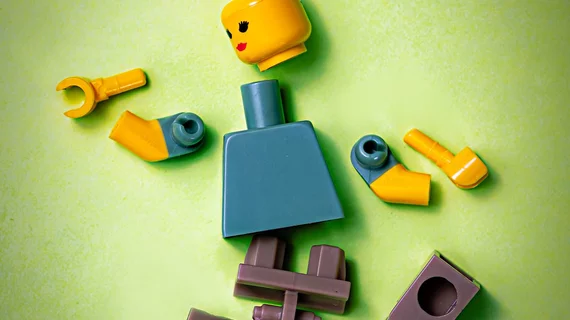LEGO's miniature MRI models help comfort nervous kids before exams
Thanks to LEGO, healthcare providers will soon be adding a new tool to their arsenal that can help combat pediatric anxiety. The company recently announced it will be donating miniature MRI replicas to radiology departments worldwide.
MRI scans can be anxiety-inducing for anyone, but children are especially vulnerable to nervousness when undergoing imaging exams. Research suggests that incorporating toys and simulations into pre-exam protocols could familiarize children with the scan and help to reduce their anxiety.
Enter the LEGO MRI scanner.
The exclusive set was created to help explain the process of getting an MRI to children, and to make it “more playful and less scary.” It comes with three characters: a doctor, a tech and a child who is preparing to be scanned. Children can even open the scanner to see what is inside, which could help them better understand how the whole procedure works.
The miniature scanner was the idea of a LEGO Group employee, Erik Ullerlund Staehr. Another employee, Fraser Lovatt, also recently shared the creation via Twitter.
“I have a small weekend project—LEGO is donating model MRI scanners to hospital radiology departments to help children who may be nervous understand the process. I get to build one!” he wrote on the social media site, alongside a picture of the replica before and after assembly.
The post has garnered hundreds of likes, both from parents of anxious children who have already been able to utilize the special MRI model and from adults who have experienced their own apprehensions prior to undergoing MRI exams.
The exclusive set will not be available in stores, nor will its assembly directions be posted online.
You can view the Twitter assembly thread photos of the scanner here. Read the full story below.

